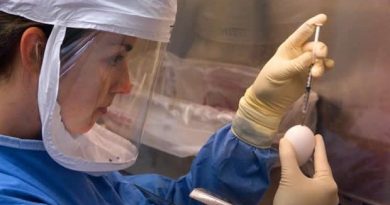Tax credits as a national prescription for health: Alleviating poverty and improving maternal child health outcomes

In a perspective published in Pediatrics, a Boston Medical Center pediatrician advocates for tax credit policy changes to expand access to cash refunds as a means to alleviate poverty, improve maternal-child health and increase equity. The COVID-19 pandemic and resulting economic recession has amplified the need for cash-transfer policies and economic relief; current estimates show that 13 million children are experiencing the health impacts of living in poverty.
Due to the association between increased income and life expectancy, in addition to the evidence-based link between poverty and suboptimal maternal-child health, both the American Academy of Pediatrics and the National Academy of Medicine (NAM) have called for the expansion of cash transfers in the form of tax credits to decrease child poverty.
Highlighted in the perspective, the Working Families Tax Relief Act (WFTRA) and the Health and Economic Recovery Omnibus Emergency Solutions (HEROES) Act provide an opportunity to increase the Child Tax Credit (CTC) to $3,000 per child, per year. Providing a child allowance such as this was the only policy that the NAM found powerful enough to meet their goal of a 50 percent reduction of child poverty over the next decade, on its own. The authors also note that the WFTRA could decrease the poverty rate by 28 percent, resulting in three million fewer children growing up in poverty. Components of the WFTRA have been included in the temporary HEROES Act, passed in response to the COVID-19 pandemic. This modifies the Earned Income Tax Credit (EITC) and CTC to align with some of NAM’s recommendations.
“Improving pathways that connect families to cash transfers and increased income are associated with better health outcomes, increased access to material goods, and decreased stress,” says Lucy Marcil, MD, MPH, lead author on the perspective, a pediatrician at Boston Medical Center, and founder of StreetCred, a financial support program for patients, meeting them where they are in the waiting room of the pediatrician’s office. “We suggest expansions in the Earned Income Tax Credit (EITC) and the CTC proposed in the WFTRA and HEROES Act represent important opportunities to implement evidence-based changes. These proposals would increase the value of the EITC and CTC, partially mitigating the harmful financial burdens that families are facing.”
The 2017 Tax Cuts and Jobs Act increased the CTC to give parents a credit of $2000 per child, up to two children. This change provides a limited benefit for families living in poverty as the credit is only partially refundable, meaning that if the credit exceeded the amount that the family owed in their taxes, the lowest income families are not eligible for a full cash transfer on the remaining balance. Modifications under the WFTRA would ensure that low-income families receive the full cash value of the credit. This change in legislation would also provide an additional $1000 per child under the age of six, a thoughtful consideration given the additional expenses families with young children encounter, such as preschool and child care.
Unrestricted cash transfers will allow families to spend the money however they need, resulting in health outcome improvements. The EITC has been associated with decreased rates of preterm birth and low birth weight, with increased rates of breastfeeding, decreases in rates of maternal depression and a reduction in inflammatory biomarkers. Similar results have been seen in Canada with their unrestricted prenatal cash transfer program. Women receiving prenatal cash benefits have reported that income assistance reduces their stress and increases their empowerment, resulting in continued benefits for their children through a reduction of exposure to stress hormones like elevated maternal cortisol levels, which can create future health implications for the child.
Source: Read Full Article



